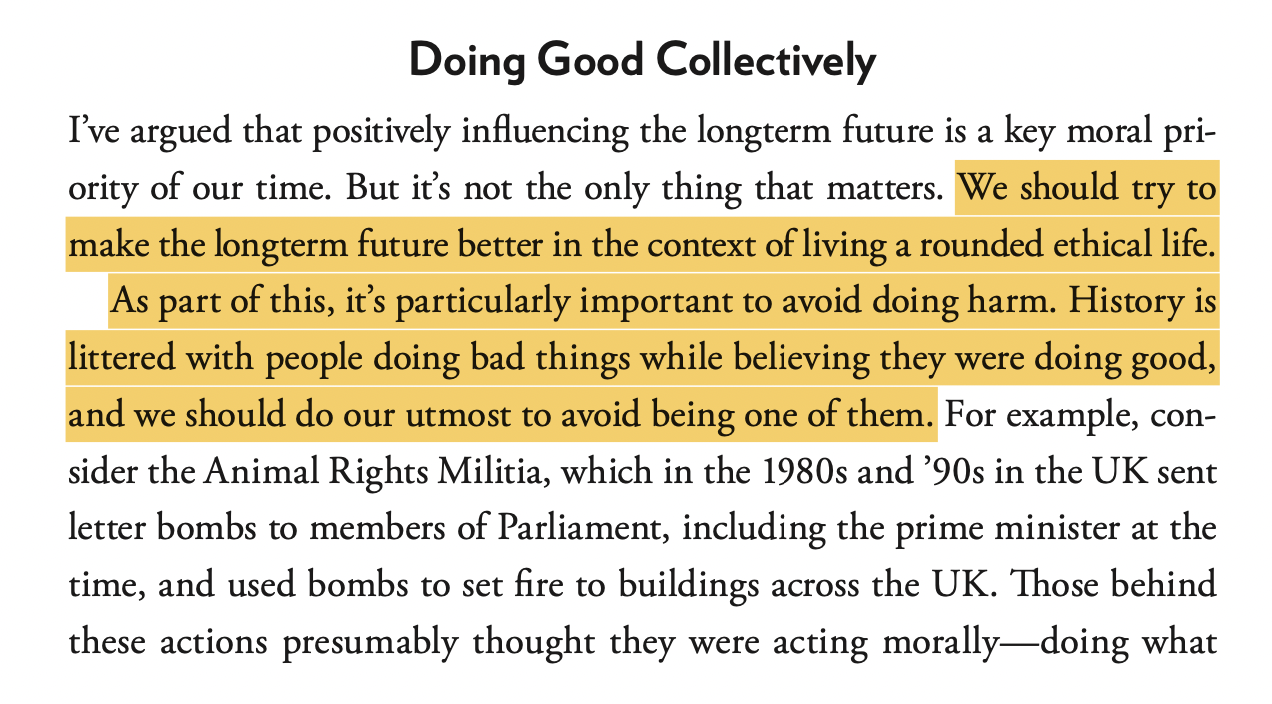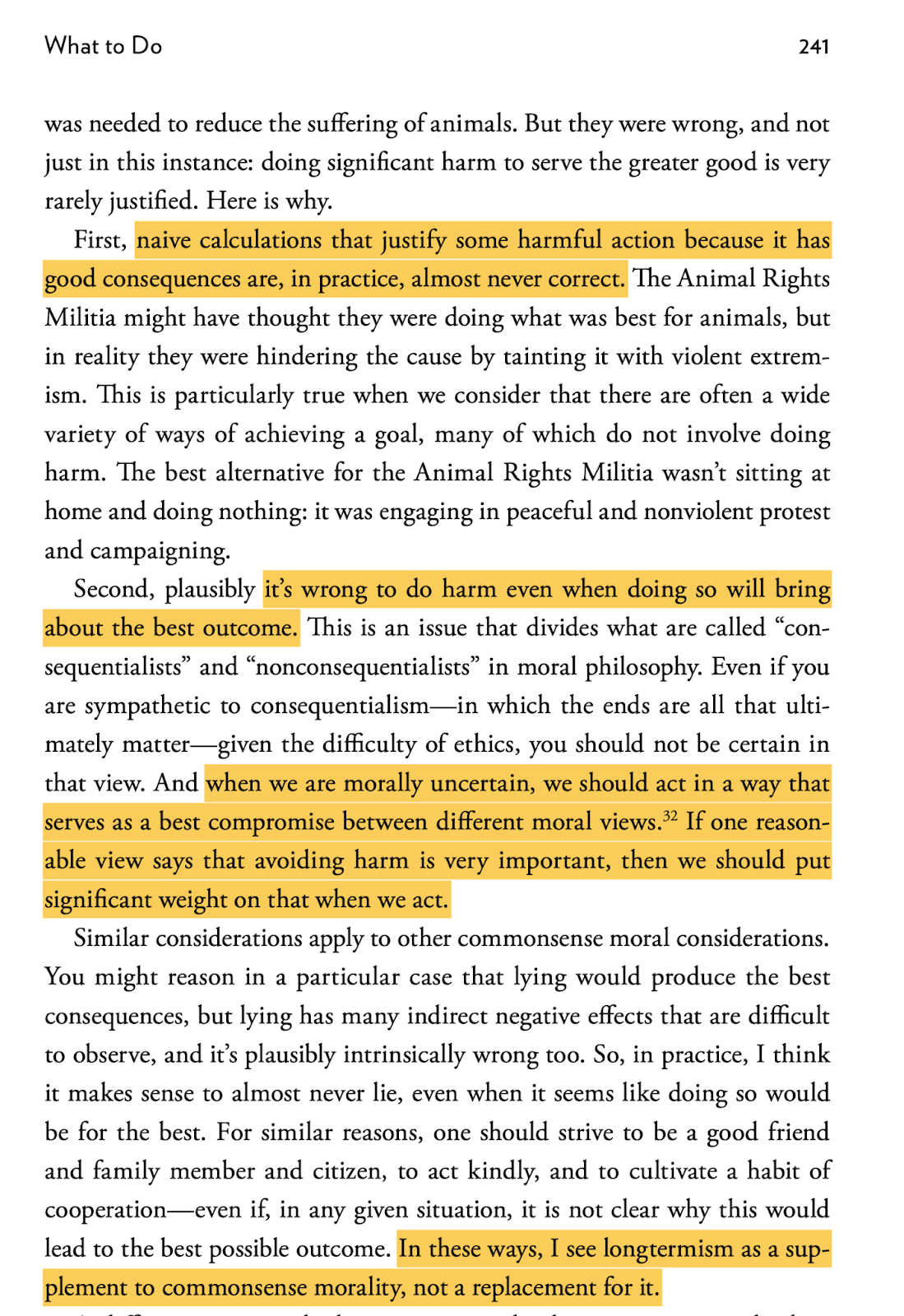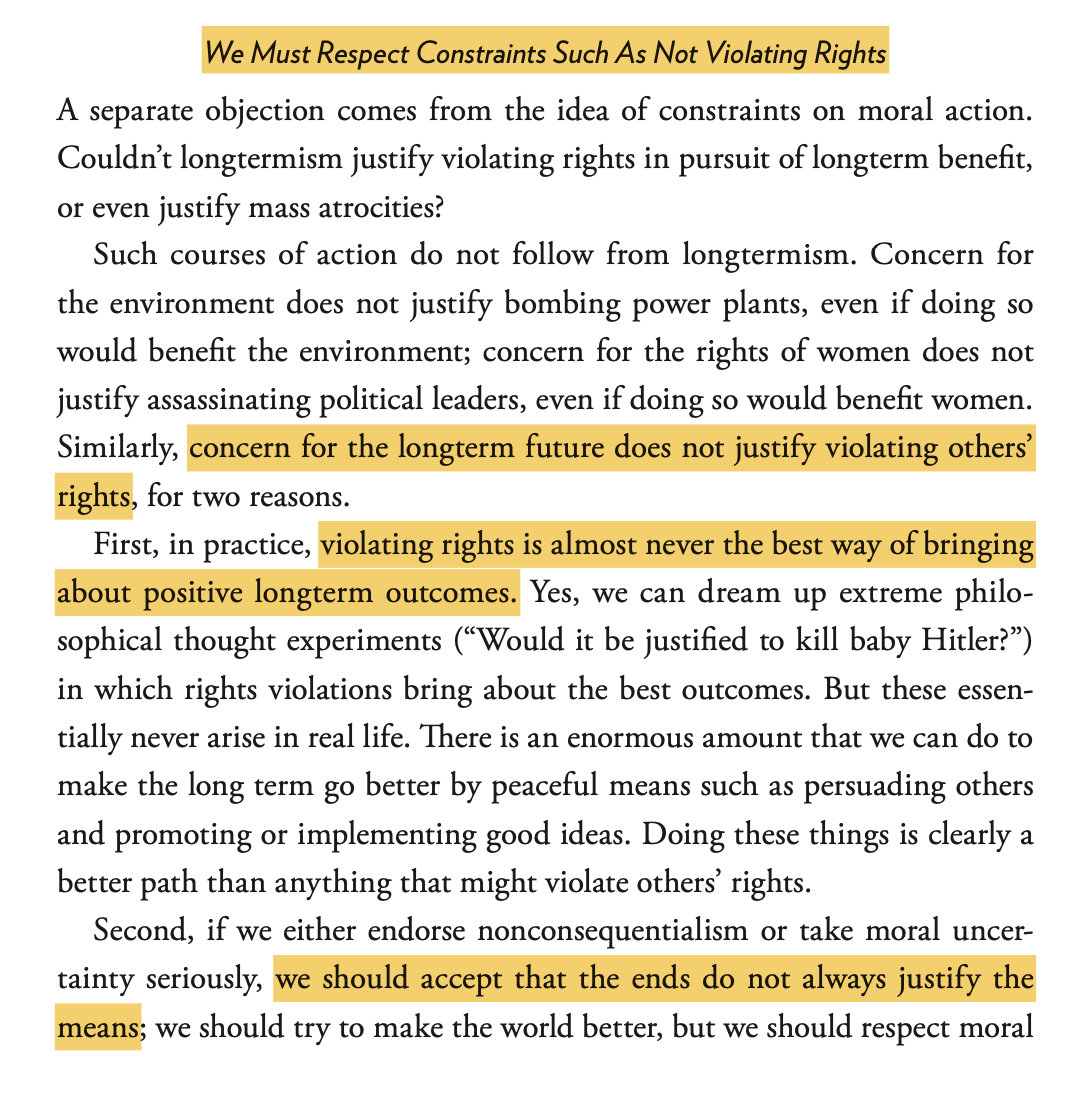This is a repost from a Twitter thread I made last night. It reads a little oddly when presented as a Forum post, but I wanted to have the content shared here for those not on Twitter.
This is a thread of my thoughts and feelings about the actions that led to FTX’s bankruptcy, and the enormous harm that was caused as a result, involving the likely loss of many thousands of innocent people’s savings.
Based on publicly available information, it seems to me more likely than not that senior leadership at FTX used customer deposits to bail out Alameda, despite terms of service prohibiting this, and a (later deleted) tweet from Sam claiming customer deposits are never invested.
Some places making the case for this view include this article from Wall Street Journal, this tweet from jonwu.eth, this article from Bloomberg (and follow on articles).
I am not certain that this is what happened. I haven’t been in contact with anyone at FTX (other than those at Future Fund), except a short email to resign from my unpaid advisor role at Future Fund. If new information vindicates FTX, I will change my view and offer an apology.
But if there was deception and misuse of funds, I am outraged, and I don’t know which emotion is stronger: my utter rage at Sam (and others?) for causing such harm to so many people, or my sadness and self-hatred for falling for this deception.
I want to make it utterly clear: if those involved deceived others and engaged in fraud (whether illegal or not) that may cost many thousands of people their savings, they entirely abandoned the principles of the effective altruism community.
If this is what happened, then I cannot in words convey how strongly I condemn what they did. I had put my trust in Sam, and if he lied and misused customer funds he betrayed me, just as he betrayed his customers, his employees, his investors, & the communities he was a part of.
For years, the EA community has emphasised the importance of integrity, honesty, and the respect of common-sense moral constraints. If customer funds were misused, then Sam did not listen; he must have thought he was above such considerations.
A clear-thinking EA should strongly oppose “ends justify the means” reasoning. I hope to write more soon about this. In the meantime, here are some links to writings produced over the years.
These are some relevant sections from What We Owe The Future:




Here is Toby Ord in The Precipice:

Here is Holden Karnofsky: https://forum.effectivealtruism.org/posts/T975ydo3mx8onH3iS/ea-is-about-maximization-and-maximization-is-perilous
Here are the Centre for Effective Altruism’s Guiding Principles: https://forum.effectivealtruism.org/posts/Zxuksovf23qWgs37J/introducing-cea-s-guiding-principles

If FTX misused customer funds, then I personally will have much to reflect on. Sam and FTX had a lot of goodwill – and some of that goodwill was the result of association with ideas I have spent my career promoting. If that goodwill laundered fraud, I am ashamed.
As a community, too, we will need to reflect on what has happened, and how we could reduce the chance of anything like this from happening again. Yes, we want to make the world better, and yes, we should be ambitious in the pursuit of that.
But that in no way justifies fraud. If you think that you’re the exception, you’re duping yourself.
We must make clear that we do not see ourselves as above common-sense ethical norms, and must engage criticism with humility.
I know that others from inside and outside of the community have worried about the misuse of EA ideas in ways that could cause harm. I used to think these worries, though worth taking seriously, seemed speculative and unlikely.
I was probably wrong. I will be reflecting on this in the days and months to come, and thinking through what should change.

Hi Sam, thanks for writing this. I'm not sure why I got so many disagree votes. I don't think crypto is a scam because criminals use it. I think they don't have the properties of a good currency. Maybe some of the stablecoins have some of them. But many of them seem to have crashed, and the transaction costs don't seem much better than traditional money transfers. It's possible that the traceability of Blockchain is an advantage over government fiat currencies. But many businesses don't want everything to be traceable. So this only seems like an advantage to the police.
Nor do they seem like a real investment because they don't generate cash flow. They are just a sort of faith-based store in value like Gold. Is that wrong?
There are also many things in Web 3 that look like literal scams.
I listed: Ponzi Schemes (yield farming); Pump and Dump (most new cryptocurrencies); Pyramid Schemes (Web 3 "jobs"), and taking risky bets with deposits (FTX).
Yes, I agree with you regarding the Bloomberg interview. I linked this as evidence that he didn't think he was helping his customers. It was quite a viral interview which is why I'm surprised more people in EA weren't talking about it.
I can't claim to be a crypto expert, but the whole thing looks pretty unethical to me when you see ordinary people regularly losing all of their money. I wish EA was less associated with what I see as a scam industry.